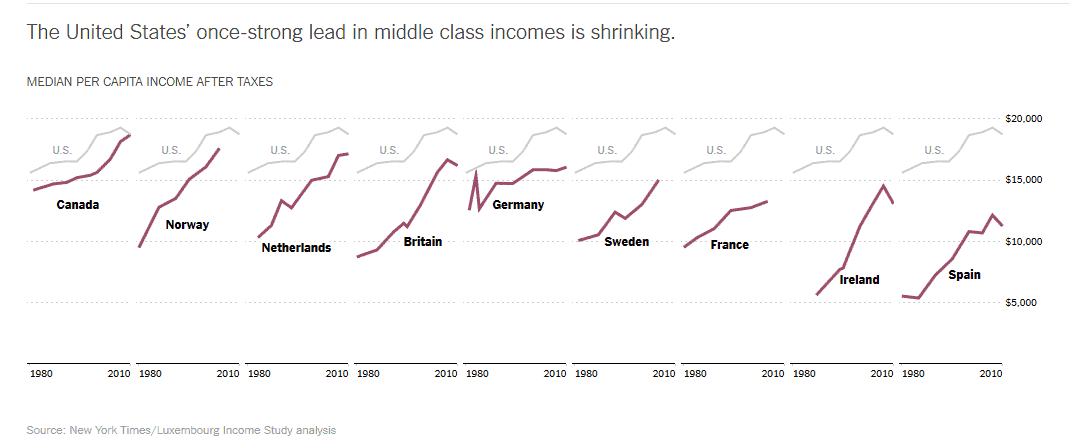Last week, we had a quick look at Thomas Piketty’s Capital in the Twenty-First Century, and data-driven research that highlights rising inequality globally. The following infographic featured today further shows how the American middle class is no longer the most affluent in the world.
Economic figures, such as GDP per capita, shows the United States has maintained its lead as the world’s richest large country. However such figures are averages, which do not capture the distribution of income.
Analysis across lower- and middle-income tiers show citizens of other industrialized countries receive larger raises over the last 30 years compared to the US. They suggest most American families are paying a steep price for high and rising income inequality.
The following broad factors appear to be at work:
1. Educational attainment in the US rising far more slowly than much of the industrialized world over the past 30 years. This makes it harder for the American economy to maintain its share of highly-skilled, well-paying jobs.
2. Companies in the US distribute a smaller share of rewards to the middle- and lower-classes than similar companies elsewhere. Top executives make more in the US, the minimum wage is lower, labor unions weaker.
3. Canada and Western Europe are more aggressive in taxing income as means for redistribution.
Irrespective of the cause, stagnation of income has left many Americans dissatisfied with the state of the country. Polls show only 30 percent of people believe the country is headed in the right direction.
Read the full article here.
In conjunction with Big Data Week, we compiled a list of the best Big Data articles here.







